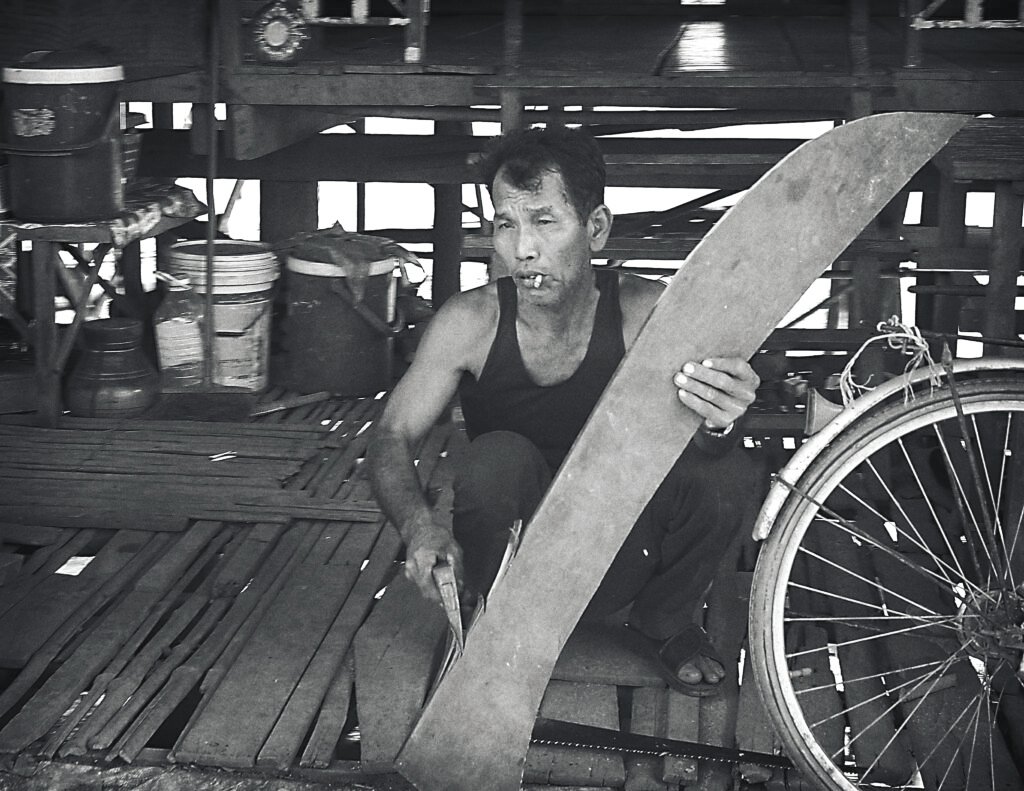
He crouches in his hut near the edge of Tonlé Sap, feet pressed into wooden slats that pass for the shack’s flooring, a cloud of cigarette smoke curling from his cracked lips, curling like incense. His name is Khoun, maybe forty, maybe older. It’s hard to tell beneath the sunburn and sawdust, the lines carved into his cheeks like river channels.
He is carving a plank that he will use to repair a boat—not his, not really—but borrowed, broken, crucial. The hull’s split from last week’s haul—too many fish, not enough hands, too much hope, not enough wood.
With a rusted axe and a blade dulled by time, he carves and scrapes, pressing fragments of palm and patched timber into the wound like a man stitching up an old friend with no anesthesia. The cigarette dangles from his mouth, ashes falling onto the wood. He doesn’t care. He rolls his own, tobacco wrapped in torn newspaper, lit by the same match he used to burn leeches off his leg yesterday.
His shirt is a faded government campaign tee. His pants are knotted with rope. Everything he wears was once someone else’s.
Behind him, children run barefoot along the water, their laughter slicing the still heat like knives. He does not look up. He exhales slowly. The smoke leaves his mouth like resignation. He works because the boat must float. Because without it, he is just another man on the shore watching the lake shrink, watching the tourists photograph the poor, watching the sky for rain that never comes on time.
When he finishes, he pats the boat like a buffalo after plowing. He stands. Winces. Lights another cigarette. The day drips on.
And somewhere in that smoke and shavings,
a man
a lake
a boat
and a quiet, stubborn survival
keep moving forward—
together,
barely,
but still afloat.